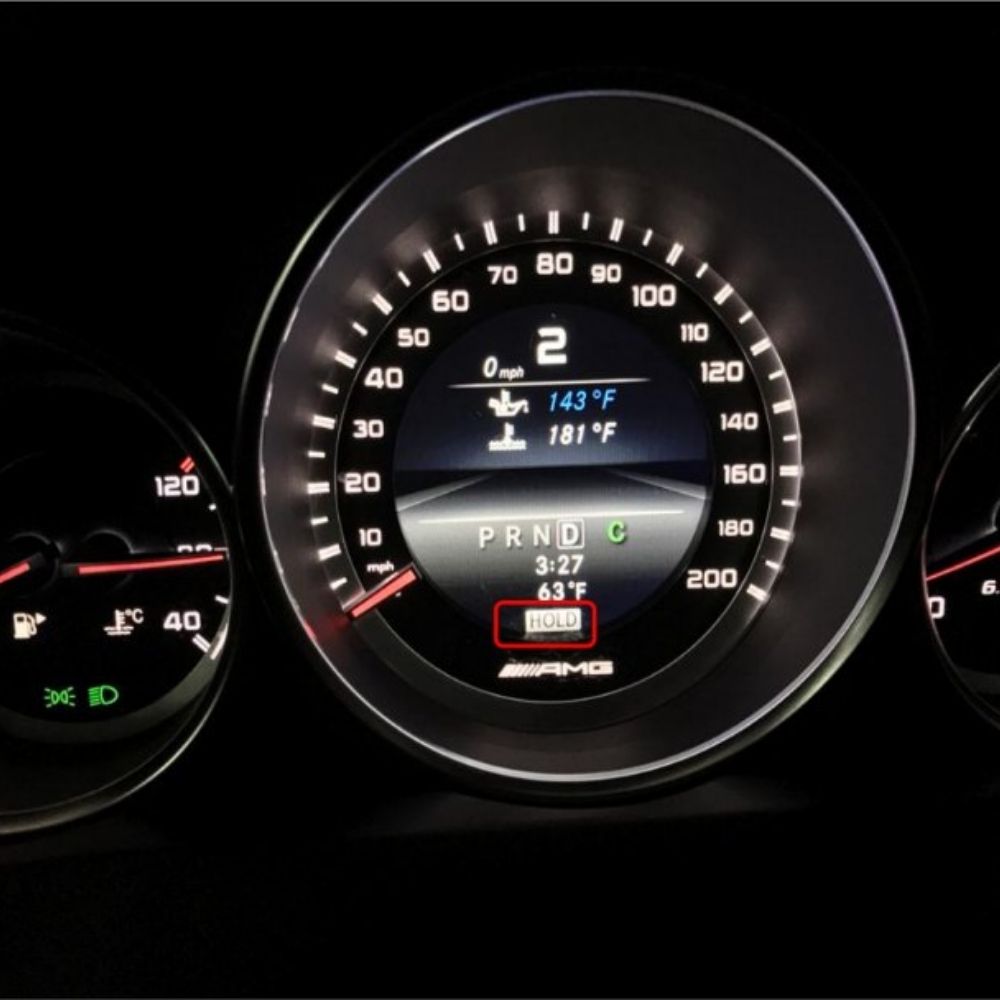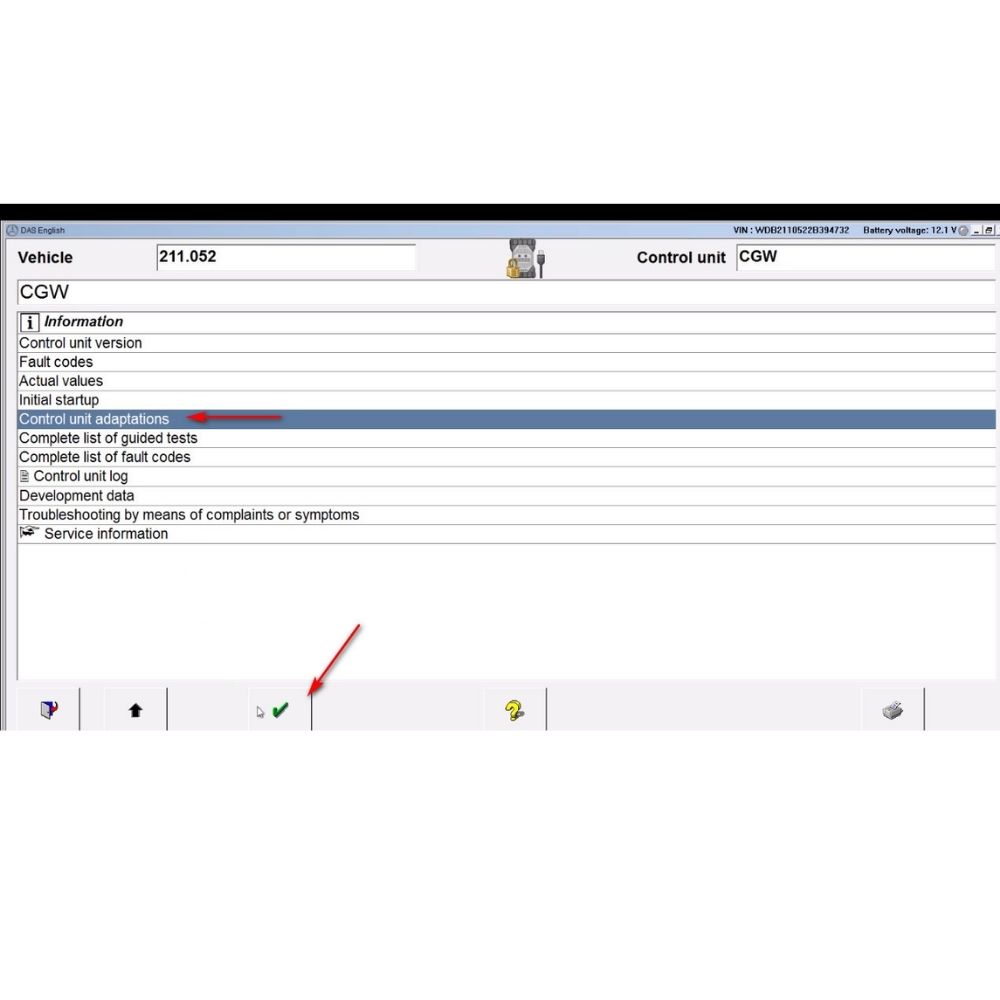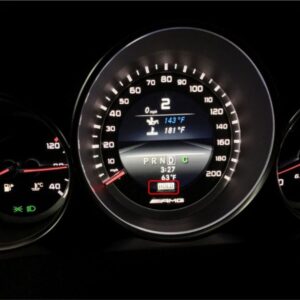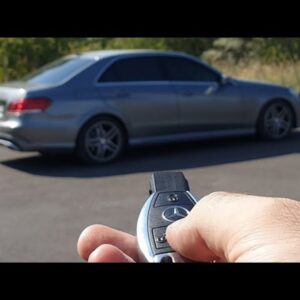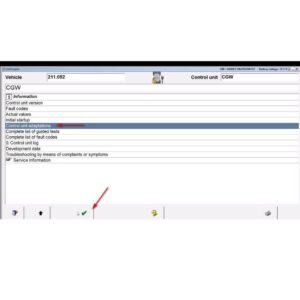Audi DTC 01130, indicating an ABS operation implausible signal, often stems from issues within the anti-lock braking system (ABS) module itself, but can be diagnosed and rectified efficiently with expert guidance. This article explores common causes, diagnostic steps, and repair solutions for this error code, and highlights how AutoExplain.com can provide remote assistance for ABS module repair, ECU programming, and overall car diagnostic needs. Let’s discuss ABS faults, ABS module issues, and hydraulic motor malfunctions.
1. What Does Audi DTC 01130 Really Mean?
Audi DTC 01130 signifies an “ABS Operation: Implausible Signal” fault, indicating the ABS control unit has detected an issue with the signal it’s receiving from one or more components of the ABS system, commonly stemming from the hydraulic motor. This code suggests the data transmitted is either inconsistent or beyond the expected range, requiring a detailed examination of the ABS module, wheel speed sensors, and related wiring.
The fault code implies that the ABS system might not function correctly during emergency braking, potentially compromising vehicle safety. Addressing this issue promptly is crucial to restore the ABS to its proper working condition and guarantee the vehicle’s safety.
2. What are the Common Symptoms of Audi DTC 01130?
When Audi DTC 01130 appears, it’s usually accompanied by several noticeable symptoms, including:
- Illuminated ABS Warning Light: This is the most common indicator, showing that the ABS system has detected a problem.
- Traction Control Light: Often lights up in conjunction with the ABS light, suggesting broader issues with the vehicle’s stability systems.
- Limited ABS Functionality: The ABS may not engage during hard braking, increasing the risk of skidding.
- Diagnostic Trouble Code: Stored within the vehicle’s computer, retrievable via an OBD-II scanner, pinpointing the 01130 fault.
- Reduced Braking Performance: Drivers might notice that the braking system isn’t as effective, particularly on slippery surfaces.
These symptoms collectively indicate a significant issue within the ABS, and immediate diagnosis and repair are vital for maintaining vehicle safety.
3. What Causes the Audi DTC 01130 Error?
Several factors can trigger the Audi DTC 01130 error, which all point back to issues in signal integrity and system functionality. Here’s a breakdown of the most common causes:
- Faulty ABS Hydraulic Pump: The pump may fail to generate the required pressure, leading to an implausible signal.
- Defective ABS Control Module: Internal failures in the module can cause incorrect data processing.
- Wiring Issues: Damaged, corroded, or loose wiring can disrupt signal transmission between sensors and the control module.
- Wheel Speed Sensor Problems: Erroneous data from these sensors can confuse the ABS module.
- Low Brake Fluid: Insufficient brake fluid can affect the hydraulic system’s ability to function correctly.
- Air in the Brake Lines: Air bubbles can interfere with hydraulic pressure and signal accuracy.
- Faulty Relays or Fuses: These components supply power to the ABS system, and their failure can lead to operational errors.
Identifying the precise cause involves a methodical diagnostic approach to determine whether it’s a component failure, wiring problem, or a combination of issues.
Affected Vehicles and Systems
Which Audi models are most prone to the 01130 ABS fault? The 01130 ABS Operation Implausible Signal fault is commonly found in a variety of Audi models, particularly those manufactured between the early 2000s and mid-2010s. Some of the most frequently affected vehicles include:
- Audi A3 (2003-2013): This model is known for ABS unit failures, often requiring replacement or repair.
- Audi TT (2006-2014): The TT is another common vehicle that experiences ABS issues, particularly with the hydraulic pump.
- Audi A4 (2001-2008): Certain versions of the A4 also have a higher incidence of ABS module faults.
These vehicles typically use ABS units manufactured by ATE (Teves), including the MK60 and MK70 series. These systems are susceptible to internal failures due to design flaws and environmental factors. A study by SEMA (Specialty Equipment Market Association) indicates that these specific ABS units have a higher failure rate compared to other systems. Understanding which models and systems are most affected can help technicians and vehicle owners focus their diagnostic efforts and identify potential solutions more efficiently. AutoExplain specializes in diagnosing and repairing ABS systems in these affected Audi models, ensuring a precise and reliable fix.
4. How to Diagnose Audi DTC 01130 Effectively?
Diagnosing Audi DTC 01130 requires a systematic approach to pinpoint the exact cause of the problem. Here’s a step-by-step guide:
- Initial Scan: Use an OBD-II scanner to confirm the presence of the 01130 code and check for any other related codes.
- Visual Inspection: Check the ABS module, wiring, and connectors for any signs of damage, corrosion, or loose connections.
- Hydraulic Pump Test: Use a multimeter to test the ABS hydraulic pump’s functionality and ensure it receives proper voltage.
- Wheel Speed Sensor Check: Examine each wheel speed sensor for damage and use a scanner to monitor their readings while driving.
- Brake Fluid Inspection: Verify that the brake fluid level is adequate and free from contamination. Bleed the brakes to remove any air from the lines.
- Module Testing: If possible, test the ABS control module using specialized diagnostic equipment to identify internal faults.
- Wiring Continuity Test: Use a multimeter to perform continuity tests on all relevant wiring to check for breaks or shorts.
- Fuse and Relay Check: Inspect the fuses and relays associated with the ABS system to ensure they are functioning correctly.
By following these steps, technicians can systematically narrow down the potential causes and accurately diagnose the issue.
5. What are the Step-by-Step Solutions for Repairing Audi DTC 01130?
Once you’ve diagnosed the cause of Audi DTC 01130, you can proceed with the necessary repairs. Here are the step-by-step solutions for each potential issue:
- Replace the ABS Hydraulic Pump:
- Disconnect the battery and locate the ABS hydraulic pump.
- Disconnect the wiring and brake lines from the pump.
- Install the new pump, reconnect the wiring and brake lines, and bleed the brake system.
- Replace the ABS Control Module:
- Disconnect the battery and locate the ABS control module.
- Disconnect the wiring harness from the module.
- Install the new module and reconnect the wiring harness.
- Program the new module to the vehicle using diagnostic software.
- Repair or Replace Damaged Wiring:
- Inspect the wiring harness for any damaged, corroded, or loose wires.
- Repair any damaged wires by splicing in new sections or replacing the entire harness if necessary.
- Ensure all connections are secure and properly insulated.
- Replace Faulty Wheel Speed Sensors:
- Locate the faulty wheel speed sensor.
- Disconnect the wiring and remove the sensor.
- Install the new sensor and reconnect the wiring.
- Address Brake Fluid Issues:
- Check the brake fluid level and add fluid if necessary.
- Bleed the brake system to remove any air from the lines.
- If the brake fluid is contaminated, flush the system and replace it with new fluid.
- Replace Faulty Relays or Fuses:
- Locate the faulty relay or fuse in the fuse box.
- Remove the faulty component and replace it with a new one of the same rating.
By systematically addressing each potential cause, you can effectively resolve the Audi DTC 01130 error and restore the ABS system to its proper working condition.
6. How Does a Faulty ABS Hydraulic Pump Trigger the 01130 Code?
A faulty ABS hydraulic pump can directly trigger the 01130 code by failing to maintain the necessary hydraulic pressure within the ABS system. This failure leads to several issues:
- Insufficient Pressure: The pump’s inability to generate adequate pressure prevents the ABS from modulating braking force effectively.
- Inconsistent Signals: The ABS control module relies on consistent pressure readings to function correctly. A failing pump sends erratic signals, causing the module to detect an anomaly.
- Compromised ABS Functionality: Without proper pressure, the ABS cannot prevent wheel lockup during emergency braking, undermining its primary function.
The 01130 code is essentially a signal that the ABS control unit has detected that the hydraulic pump isn’t performing as expected, leading to operational inconsistencies.
7. Can a Defective ABS Control Module Lead to Audi DTC 01130?
Yes, a defective ABS control module is a significant cause of Audi DTC 01130. The control module is responsible for processing data from various sensors and controlling the hydraulic pump. When the module fails, it can lead to:
- Incorrect Data Processing: The module might misinterpret signals from wheel speed sensors or pressure sensors, resulting in an implausible signal error.
- Communication Failures: Internal faults can disrupt communication between the module and other components of the ABS system.
- Inability to Control the Hydraulic Pump: A malfunctioning module may fail to regulate the hydraulic pump correctly, leading to pressure inconsistencies.
- Software Corruption: Corrupted software within the module can cause it to operate erratically and generate false error codes.
A defective control module directly impairs the ABS system’s ability to function correctly, triggering the 01130 code as a result of these malfunctions.
8. How Do Wiring Issues Contribute to the 01130 Error Code?
Wiring issues play a critical role in triggering the 01130 error code. The integrity of the wiring harness is essential for transmitting accurate signals within the ABS system. Common wiring problems include:
- Corrosion: Corrosion on connectors and wires increases resistance, weakening signal strength.
- Breaks and Shorts: Damaged wires can cause intermittent or complete signal loss.
- Loose Connections: Loose connectors can disrupt the flow of information.
- Interference: Damaged insulation can lead to signal interference from other electrical systems.
These wiring issues can cause the ABS control module to receive incorrect or incomplete data, leading to the “implausible signal” error. Addressing wiring problems involves a thorough inspection, repair, and proper protection of the wiring harness to ensure reliable signal transmission.
9. What Role Do Wheel Speed Sensors Play in the 01130 Fault?
Wheel speed sensors are crucial components of the ABS, monitoring the rotational speed of each wheel and transmitting this data to the ABS control module. Problems with these sensors can significantly contribute to the 01130 fault. Common issues include:
- Sensor Damage: Physical damage to the sensor can prevent it from accurately measuring wheel speed.
- Wiring Problems: Damaged or corroded wiring can disrupt the signal transmission from the sensor to the control module.
- Contamination: Debris or contaminants on the sensor can interfere with its ability to read wheel speed correctly.
- Air Gap Issues: Incorrect air gap between the sensor and the tone ring can lead to inaccurate readings.
When wheel speed sensors provide incorrect data, the ABS control module may misinterpret this information as an implausible signal, triggering the 01130 code.
10. Can Low Brake Fluid or Air in the Lines Cause the 01130 Code?
Yes, low brake fluid or air in the brake lines can indirectly cause the 01130 code. These conditions affect the hydraulic pressure within the ABS system, leading to:
- Reduced Hydraulic Pressure: Low brake fluid reduces the overall pressure available for the ABS to function.
- Inconsistent Pressure Readings: Air in the lines creates spongy brake feel and inconsistent pressure readings, which the ABS module interprets as an anomaly.
- Compromised ABS Functionality: Insufficient or erratic pressure impairs the ABS’s ability to modulate braking force effectively.
While these issues don’t directly cause a sensor malfunction, they disrupt the hydraulic system to the point where the ABS control module detects an implausible signal, triggering the 01130 code.
11. How Can AutoExplain.com Assist in Diagnosing and Repairing Audi DTC 01130?
AutoExplain.com offers comprehensive support for diagnosing and repairing Audi DTC 01130, providing:
- Remote Diagnostic Assistance: Expert technicians can remotely analyze diagnostic data from your vehicle to pinpoint the exact cause of the issue.
- Step-by-Step Repair Guidance: Detailed instructions and visual aids to guide you through the repair process.
- ABS Module Programming: Remote programming services to ensure that replacement ABS modules are correctly configured for your vehicle.
- Access to Technical Documentation: Schematics, wiring diagrams, and technical bulletins to aid in troubleshooting.
- Real-Time Support: Direct communication with experienced technicians via WhatsApp, email, or online platforms.
AutoExplain.com bridges the gap between complex automotive diagnostics and effective repair solutions, ensuring technicians and DIYers can confidently tackle issues like the Audi DTC 01130.
12. What are the Benefits of Using Remote Assistance from AutoExplain.com?
Utilizing remote assistance from AutoExplain.com offers numerous advantages, including:
- Expert Knowledge: Access to experienced technicians with specialized knowledge of Audi ABS systems.
- Time Savings: Faster and more accurate diagnoses reduce repair time.
- Cost-Effectiveness: Avoid expensive dealership visits by performing repairs in-house with expert guidance.
- Convenience: Receive support from anywhere, eliminating the need to transport the vehicle to a shop.
- Reduced Downtime: Quickly resolve issues to minimize vehicle downtime and maintain operational efficiency.
Remote assistance empowers technicians and DIYers to address complex automotive issues with confidence, ensuring high-quality repairs without unnecessary delays or costs.
13. What Information Do I Need to Provide AutoExplain.com for Effective Assistance?
To receive the most effective assistance from AutoExplain.com, be prepared to provide the following information:
- Vehicle Details: Make, model, year, and VIN (Vehicle Identification Number).
- Diagnostic Trouble Codes: A list of all DTCs retrieved from the vehicle’s computer.
- Symptoms: A detailed description of the symptoms you’re experiencing.
- Diagnostic Data: Live data readings from sensors and components related to the ABS system.
- Repair History: Any previous repairs or maintenance performed on the ABS system.
- Photos/Videos: Visual evidence of any damage or issues you’ve identified.
Providing comprehensive information ensures that AutoExplain.com technicians can quickly and accurately assess the problem, offering tailored solutions to resolve the Audi DTC 01130 efficiently.
14. How Does AutoExplain.com Ensure the Quality of Remote Programming Services?
AutoExplain.com maintains high standards for remote programming services through:
- Experienced Technicians: Certified professionals with extensive experience in automotive ECU programming.
- Advanced Diagnostic Tools: State-of-the-art equipment for accurate and reliable programming.
- Secure Connections: Encrypted communication channels to protect data integrity during programming.
- Verification Processes: Post-programming tests to ensure the ABS module is functioning correctly.
- Ongoing Training: Continuous professional development to stay current with the latest automotive technologies.
By adhering to these rigorous standards, AutoExplain.com ensures that remote programming services are accurate, reliable, and safe, providing customers with peace of mind and optimal vehicle performance.
15. What Other Services Does AutoExplain.com Offer for Audi Vehicles?
Besides ABS diagnostics and programming, AutoExplain.com offers a wide array of services for Audi vehicles, including:
- ECU Programming and Cloning: Ensuring optimal engine performance and data management.
- TCM (Transmission Control Module) Services: Addressing transmission-related issues for smooth gear transitions.
- BCM (Body Control Module) Programming: Customizing and troubleshooting vehicle body electronics.
- AdBlue System Repairs: Solutions for diesel exhaust fluid system problems.
- Navigation System Updates: Keeping your navigation system current with the latest maps and features.
- Key Programming: Programming new or replacement keys for your vehicle.
- General Diagnostics: Comprehensive vehicle diagnostics to identify and resolve a wide range of issues.
- Technical Training: Providing professionals with the necessary skills and insights to enhance their diagnostic capabilities.
AutoExplain.com serves as a comprehensive resource for Audi owners and technicians, offering expert support to keep vehicles running smoothly and efficiently.
16. How Do I Contact AutoExplain.com for Technical Support?
Contacting AutoExplain.com for technical support is easy. You can reach their team through the following channels:
- WhatsApp: +1(936)2896695 for immediate assistance and real-time communication.
- Email: [email protected] for detailed inquiries and service requests.
- Website: AutoExplain.com to explore their full range of services and resources.
Whether you’re a professional technician or a DIY enthusiast, AutoExplain.com is ready to provide the expert support you need to tackle complex automotive issues with confidence.
17. What is the Typical Turnaround Time for Remote Programming Services?
The turnaround time for remote programming services from AutoExplain.com varies depending on the complexity of the task and the specific module being programmed. However, most remote programming services are completed within:
- Simple Programming Tasks: 1-2 hours.
- Complex Module Programming: 2-4 hours.
- ECU Cloning: 4-8 hours.
AutoExplain.com prioritizes efficiency and strives to minimize downtime, ensuring that vehicles are back on the road as quickly as possible. Technicians will provide an estimated turnaround time upon assessing the specific requirements of the programming task.
18. What are Some Preventative Measures to Avoid the 01130 Error?
Preventative maintenance is key to avoiding the 01130 error and maintaining the health of your Audi’s ABS system. Consider these measures:
- Regular Brake Fluid Checks: Ensure brake fluid levels are adequate and free from contamination.
- Routine Brake Inspections: Check brake pads, rotors, and calipers for wear and damage.
- Wiring Maintenance: Inspect and protect wiring harnesses from damage and corrosion.
- Wheel Speed Sensor Cleaning: Keep wheel speed sensors clean and free from debris.
- Proper Storage: Protect the vehicle from extreme weather conditions that can damage electronic components.
- Professional Diagnostics: Periodically have the ABS system checked by a qualified technician.
By incorporating these preventative measures into your vehicle maintenance routine, you can significantly reduce the risk of encountering the 01130 error and ensure the long-term reliability of your ABS system.
19. How Do I Know if I Need to Replace or Reprogram the ABS Module?
Determining whether to replace or reprogram the ABS module depends on the nature of the problem. Here are some guidelines:
- Replace the Module: If the module has physical damage, internal component failure, or is beyond repair.
- Reprogram the Module: If the module has corrupted software, is being installed in a different vehicle, or needs to be updated with the latest software version.
- Diagnostics: Consult with a qualified technician to perform thorough diagnostics to determine the best course of action.
- Error Codes: Analyze the specific error codes to understand the root cause of the issue.
In many cases, reprogramming can resolve software-related issues, while physical damage or hardware failures necessitate module replacement.
20. What is the Cost of Repairing the 01130 Error on an Audi Vehicle?
The cost of repairing the 01130 error on an Audi vehicle can vary widely depending on the underlying cause and the necessary repairs. Here’s a general breakdown:
- Wheel Speed Sensor Replacement: $150 – $300 per sensor.
- Wiring Repair: $100 – $400, depending on the extent of the damage.
- Brake Fluid Service: $80 – $150 for a flush and refill.
- ABS Hydraulic Pump Replacement: $500 – $1,200, including labor.
- ABS Control Module Replacement: $600 – $1,500, including programming.
For a precise estimate, consult with a trusted mechanic and provide detailed diagnostic information. AutoExplain.com can also offer remote diagnostic services to help you understand the scope and cost of the repair.
Do you need expert assistance with Audi DTC 01130? Contact AutoExplain.com now via WhatsApp at +1(936)2896695 or email at [email protected] for fast, reliable support and solutions.
